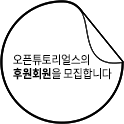Lesson4 Transform doing/to do to just noun.
A today's phrase looks awkward in english. But It is natural way in korean.
- ~하는 것 make the sentence to noun phrase, so that it can be object of other verb. It is used like [that ~] [one's ~ing] [for ~ to ~] in english.
- Sometime 하지만 (저는) [(제가) 언어를 공부하는 것]을 매우 좋아해요. But I like [learning languages a lot]
- But it can be used in written formal korean, especially essay or poet, philosophy. (Topic3) It is an influence of english.
- Natural in speaking, informal 사랑은 어려워요. Love is difficult.
- Natural in written 누군가를 사랑하는 것은 쉽지 않은 일이다. Loving someone is not easy work.
- But Korean avoid to use "~하는 것". It usually make a sentence longer and hard to understand. If you use it often, It would sounds and looks strange.
- We can use replace '하는 것' with '~하기', omit 은는이가을를 and shorten 것은=>건, 것을 => 걸
- But I like [learning languages a lot]
- sometime 하지만 [언어 공부하는 것을] 매우 좋아해요.
- Natural... 하지만 [언어 공부하기]를 매우 좋아해요.
- Everyone know [that [loving enemies] is difficult]
- 모두 everyone
- ~을/를 알아요. know ~
- 어려워요. 어렵다. is difficult.
- [loving ~] [~을/를 사랑하는 것] = [~을/를 사랑하기]
- sometime [[적을 사랑하는 것이] 어렵다는 것을] 모두가 알아요.
- Natural... [[적을 사랑하기] 어렵다는 걸] 모두 알아요.
- But I like [learning languages a lot]
- It is best to use the noun form of the verb, or transform the verb.
- Natural and concise 하지만 언어 공부를 매우 좋아해요. But I like language learning a lot.
- Natural and concise [[적을 사랑하기] 어려움을] 모두 알아요.Everyone know [that [loving enemies] is difficult]
So what is the noun form? Or How to transform the verb?
There are rules, and ilregulars... You will have to get used to them someday.
But Not Today... You can just use second way. using '~하기',omitting and shortening.


